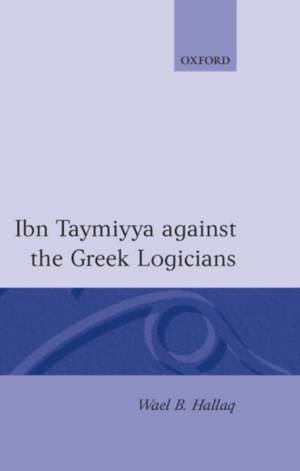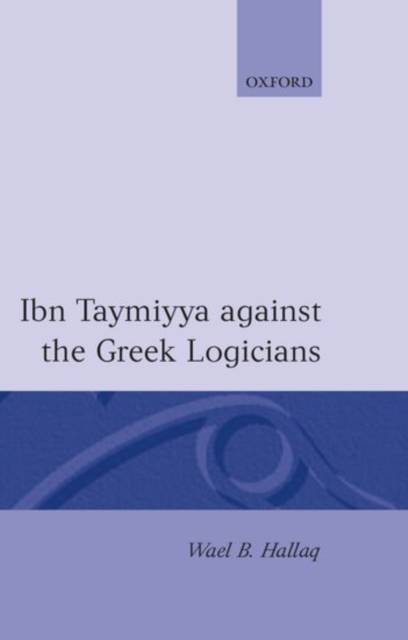
Je cadeautjes zeker op tijd in huis hebben voor de feestdagen? Kom langs in onze winkels en vind het perfecte geschenk!
- Afhalen na 1 uur in een winkel met voorraad
- Gratis thuislevering in België vanaf € 30
- Ruim aanbod met 7 miljoen producten
Je cadeautjes zeker op tijd in huis hebben voor de feestdagen? Kom langs in onze winkels en vind het perfecte geschenk!
- Afhalen na 1 uur in een winkel met voorraad
- Gratis thuislevering in België vanaf € 30
- Ruim aanbod met 7 miljoen producten
Zoeken
Omschrijving
Ibn Taymiyya, one of the greatest and most prolific thinkers of medieval Islam, held Greek logic responsible for the "heretical" metaphysical conclusions reached by Islamic philosophers, theologians, mystics, and others. Unlike Ghazali, who rejected philosophical metaphysics but embraced logic, Ibn Taymiyya considered the two inextricably connected. He therefore set out to refute philosophical logic, a task which culminated in one of the most devastating attacks ever levelled against the logical system upheld by the early Greeks, the later commentators, and their Muslim followers. His argument is grounded in an empirical approach that in many respects prefigures the philosophies of the British empiricists. Hallaq's translation, with a substantial introduction and extensive notes, makes available to a wider audience for the first time an important work that will be of interest to specialists in ancient and medieval philosophy and to historians of logic and empiricist philosophy, as well as to scholars of Islam and Middle Eastern thought.
Specificaties
Betrokkenen
- Auteur(s):
- Vertaler(s):
- Uitgeverij:
Inhoud
- Aantal bladzijden:
- 262
- Taal:
- Engels
Eigenschappen
- Productcode (EAN):
- 9780198240433
- Verschijningsdatum:
- 11/11/1993
- Uitvoering:
- Hardcover
- Formaat:
- Genaaid
- Afmetingen:
- 146 mm x 224 mm
- Gewicht:
- 526 g

Alleen bij Standaard Boekhandel
+ 692 punten op je klantenkaart van Standaard Boekhandel
Beoordelingen
We publiceren alleen reviews die voldoen aan de voorwaarden voor reviews. Bekijk onze voorwaarden voor reviews.









